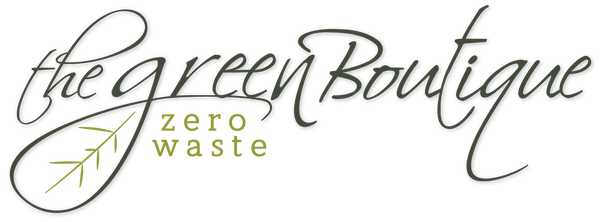CITRIC ACID is one of my favourite ingredients.
It occurs naturally in citrus fruits and is widely used as an acidity regulator, flavouring and preservative in food and drinks. It can also replace many of our domestic cleaning products. It is, in fact, a viable alternative to limescale remover, dishwasher rinse-aid, fabric softener and even conditioner (recipe here) for your hair! It is an excellent product with which to treat tap water; helping to improve the effectiveness of soaps and laundry detergents. To obtain your citric acid 'magic potion' (recipe here) just mix the powder with some water, preferably distilled (if you have a dehumidifier, the water collected from it is perfect) as it allows the solution to work more effectively. The quantity of the powder depends on the water hardness in your area, particularly if there is a lot of lime in the water. (It is always a good idea to know the pH value of your water).
It is excellent as a dishwasher rinse-aid because commercial rinse-aid tends to leave deposits on our tableware (to make them shine) and as a result ends up in our food and drinks as well. So, swapping commercial rinse-aid with something natural like citric acid is the best answer. As a fabric softener, citric acid excels because it neutralises the alkalinity of laundry detergent. It doesn't act like a commercial softener, that essentially applies a thin, waxy, scented coating to your laundry. Although that makes your clothes feel softer, it contains a cocktail of non-renewable, petroleum-based chemicals. These are not easily biodegradable and can become highly toxic to aquatic life and even toxic and allergenic for people with sensitive skin. For this reason, it is strongly recommended not to use fabric softener on newborn babies’ clothes. I know that many people prefer not to use fabric softener, but it is advisable to use it in the washing machine to help prevent skin allergies. In fact, washed clothes are very alkaline, especially if you use laundry powder, and their pH (around 9) is totally different from our skin pH (around 5.7). As a softener, citric acid acts as a pH adjuster, bringing the laundry alkaline pH closer to our natural skin pH.
Many people use WHITE VINEGAR as a fabric softener. Vinegar is an effective, natural product for cleaning, but it should only be used in moderation. Tests on the biodegradability of acetic acid have established that vinegar has an impact on the environment 53 times greater than that of citric acid. These tests, following the ECOLABEL requirements (established in 1992 and recognised across Europe and worldwide, the EU Ecolabel is a label of environmental excellence that is awarded to products and services meeting high environmental standards throughout their life-cycle), showed that to neutralise 1% of acetic acid (vinegar) 1667 litres of water are required, while for the citric acid just 31.25 litres. On the EU website, you can find the criteria, and the numbers of the DID List (Detergent Ingredients Database) used to calculate it. Also Dr. Fabrizio Zago's* studies on both products when using washing-machine showed that acetic acid (vinegar) is more aggressive and corrosive than citric acid when it comes in contact with nickel and other metal. In fact, the wastewater of a wash using acetic acid carries more metals than the one using citric acid. As you probably already know, nickel is one of the metals that can cause skin irritation and dermatitis.
Also, I would like to underline that, usually, vinegar comes in small glass bottles or bigger plastic containers, causing a more significant environmental impact considering production, shipping and waste disposal. When I discovered this, I was surprised and concerned as I had always thought that vinegar was a natural product that biodegrades easily. In fact, natural does not mean 100% biodegradable, and we have to do our best by using products that are less dangerous and toxic for us, our homes and our mother earth! For more info about citric acid have a look at the following website and at this file.
*Fabrizio Zago is an awarded chemist: after gaining a bachelor's degree in Chemistry, he worked as a manager of a detergents and cosmetics factory in Italy and since 1987 as an independent consultant. Since 2001 he has been a member for the detergents and cosmetics sector of UEAPME (the European Association of Craft, Small and Medium-sized Enterprises) based in Brussels, Belgium. Here he worked as a 'technical expert' for the working groups that were developing the criteria to be assigned to the Ecolabel. Since 2003 he has been a member of the ICEA (the Ethical and Environmental Certification Institute) in both the cosmetic and detergent sectors. He is the author of EcoBiocontrol, a handy source to understand the harmfulness of the ingredients (INCI) contained in beauty and cleaning products. So, if you want to check on the INCI (International Nomenclature Cosmetic Ingredient) of your products, a handy tool is definitely his EcoBioDizionario (www.ecobiocontrol.bio) - available also in English - and the EcoBioControl App that you can download for free!
I hope you will find this explanation useful!
HAPPY DIY
LOVE _ JO

1 comment
Great to meet you at the Chichester EcoFestival today. Your article about white vinegar is very helpful- great to know there’s genuine science behind your reasoning. Hugely strengthens your case.
I wish you well. Small businesses like yours will be key to future hope for our children.